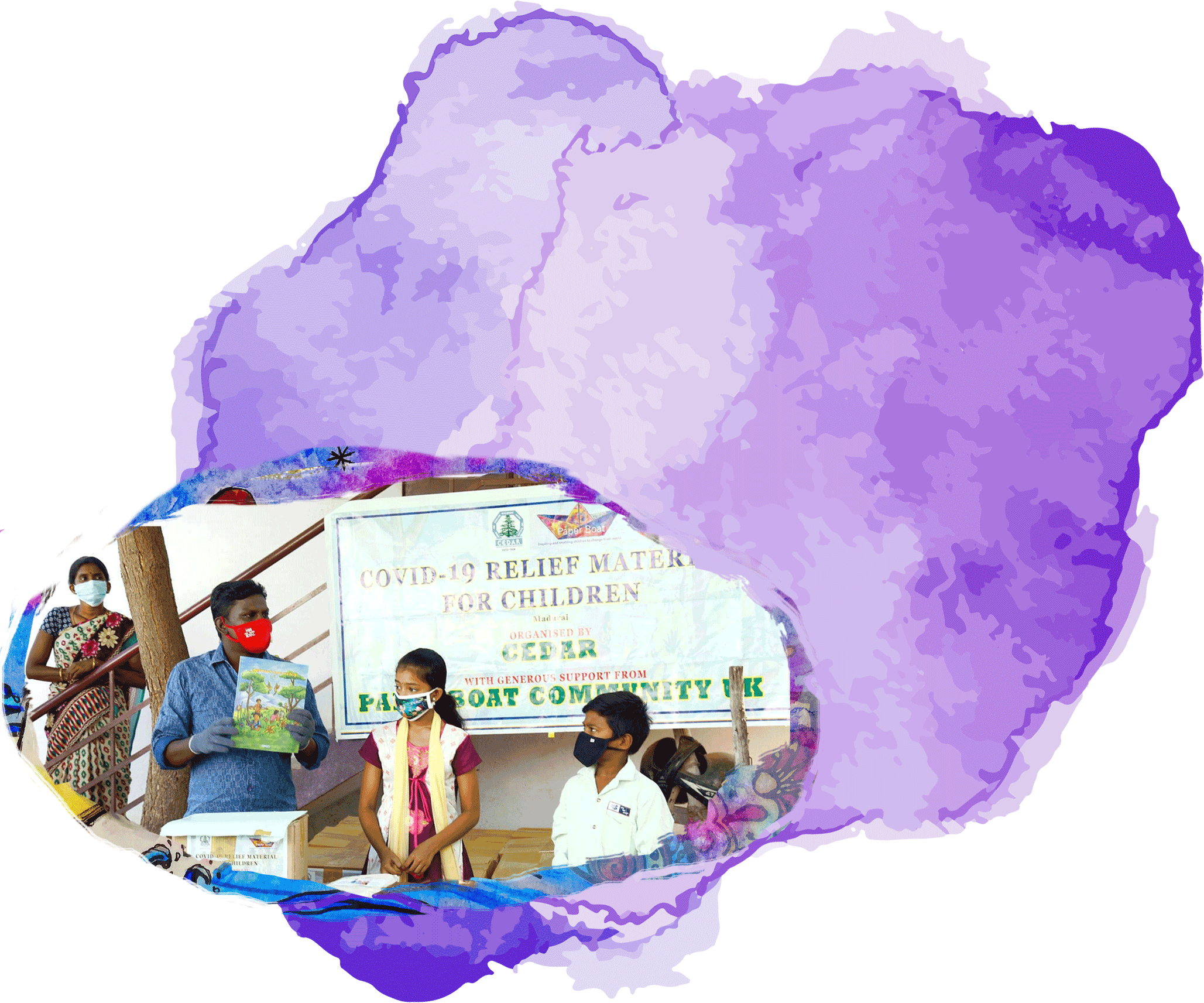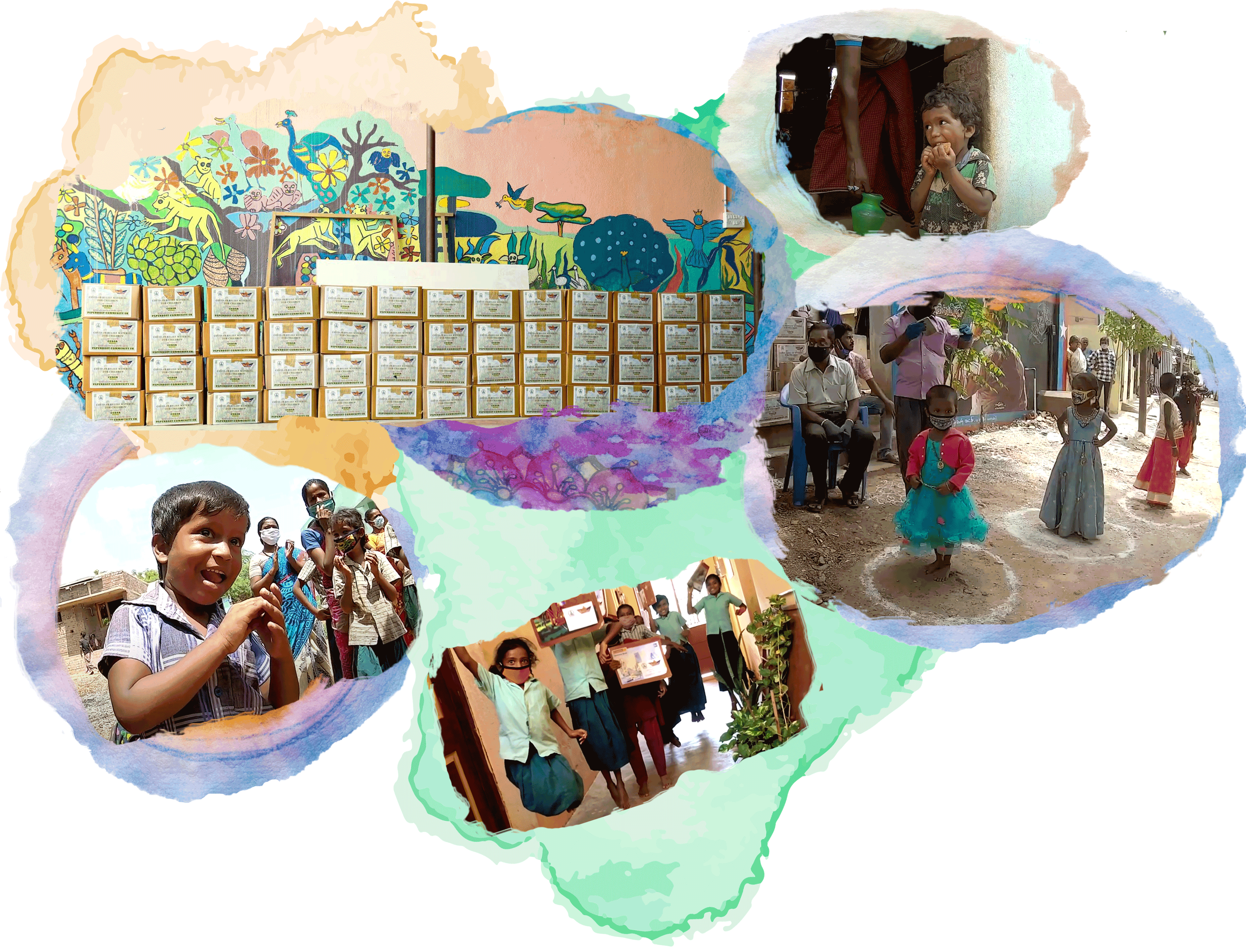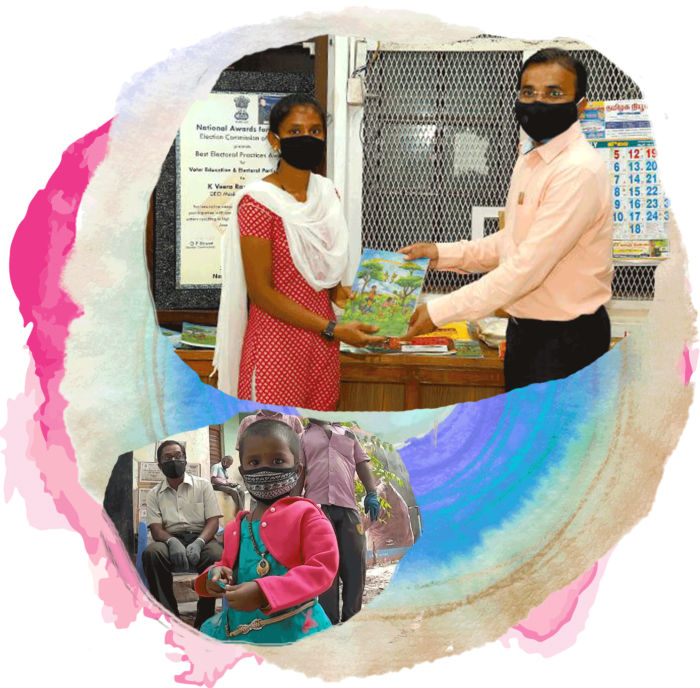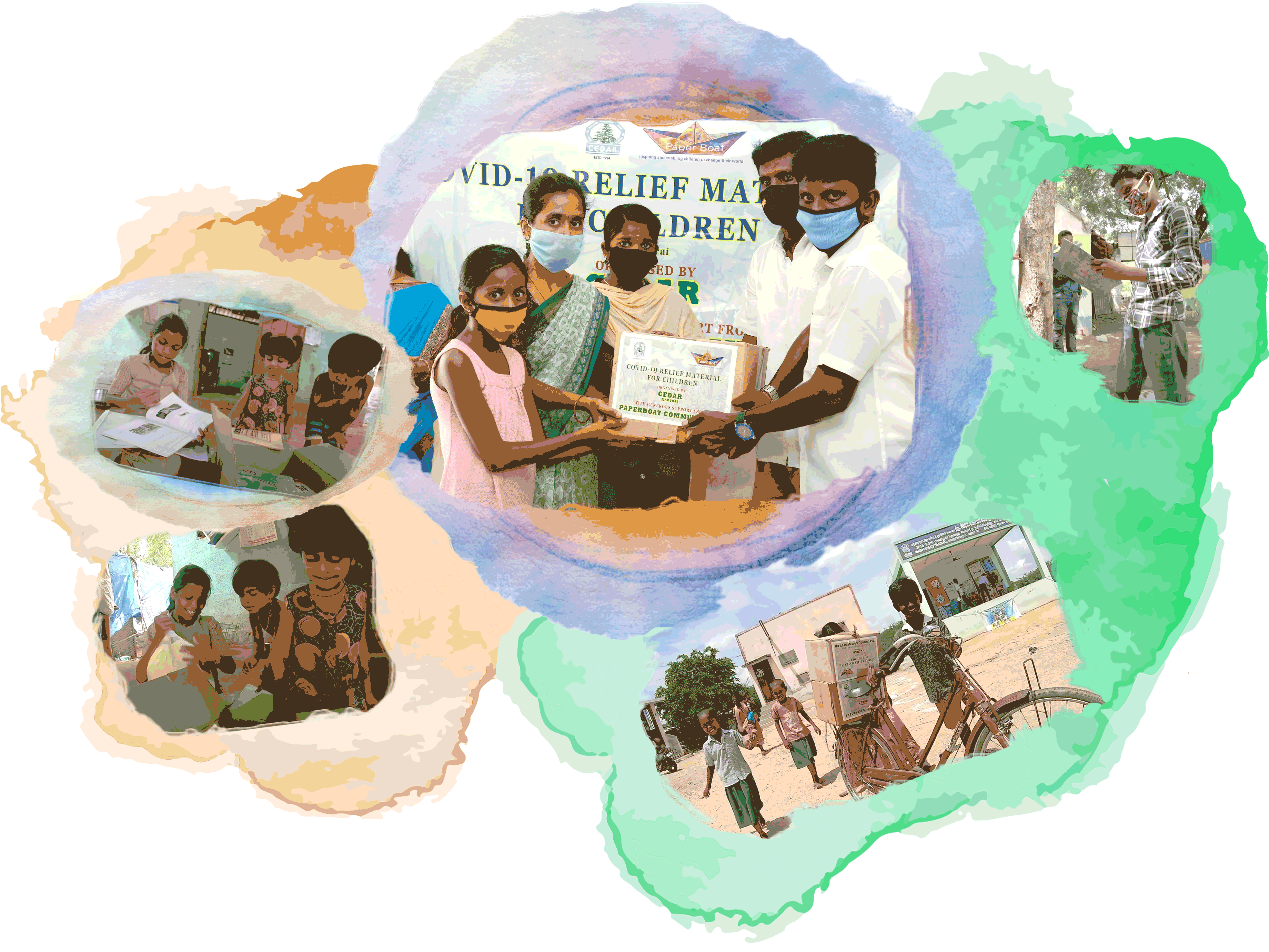COVID-19 Emergency Response
COVID-19 Emergency Response
As much of the world is moving out of lock down and moving into the recovery phase following the impact of COVID-19, the situation in India is becoming increasingly desperate, particularly for those at the margins.
Tamil Nadu is one of the worst affected States in India (second highest number of COVID-19 cases in India after Maharashtra) and some parts, including Madurai, rather than seeing an easing of lockdown restrictions are seeing extensions. Paper Boat has listened to voices on the ground and continue to work with local partners to respond to the immediate and ongoing needs of communities who are amongst the most vulnerable in Tamil Nadu, India.

Lockdown without a safety net for 'invisible' communities

In Tamil Nadu, Government aid for families is dependent on possession of identity cards, which many who are forced to live on the margins do not have. Furthermore, around 10% of families in the communities we work with also have no means of access to basic dry rations. Families that have received provisions have been unable to cope on £12 for three months, and poor-quality food that lacks nutrition leaves children vulnerable to common infections.
Job losses and lockdown restrictions are forcing below poverty line families reliant on low-paid often informal labour to face the difficult choice between breaking restrictions to engage in dangerous income generating strategies or remaining at home without any means to obtain the food and basic items needed to support their families. They face potential violent repercussions as well as increased risk of exposure to the virus.
Field staff have received reports of new instances of child labour in “secret” match factories in rural communities.As young people are being forced to support their families following job losses. Children are losing their childhoods and being pushed into work.
Lack of digital access, lower home literacy rates and necessary utilisation of children as a human capital in below poverty line households all perpetuate the inequality in education. Lockdown has deepened the educational divide that already existed with partisan classroom practices.
Long term negative impacts on mental health and emotional wellbeing will be the greatest on children at the margins. Children at the margins suffer from separation from friends and teachers in cramped conditions, vulnerability to malnutrition and other health risks, and the burden and stress of supporting struggling relatives.
Now, more than ever, Paper Boat are committed to listening and responding to the needs of vulnerable communities.
It’s not too late to support the appeal- Just £18 can support a vulnerable family through this challenging time.

Finding a new way
Our purpose is to listen to young people – inspiring and enabling them to change their world.
The global pandemic is causing all of us to reflect more deeply on who we are, why we are here and where we are going.
Here at Paper Boat we have focused on what it is that we really stand for…above all else we are a charity that believes in the profound importance of listening to children.
How we travel and the route we take may have changed but our vision and our purpose remain the same and we are keeping our eyes on these guiding stars as together we navigate new complexity in the world.
You can read more about the ‘guiding stars’ on our Steering the Boat page.
Our response
Click on the tabs below to learn more about our approach and how we as an organisation have adapted to live out our values of courage, creativity and collaboration in new ways.
One of the most unique features of our relief efforts was the creative home learning resource and art materials that were distributed to more than 1,000 children. Packed with imaginative activities for children to get creative and playful at home whilst schools are closed during lock down, our home learning kit has not only attracted media attention but also been hailed by senior government in Madurai.
Furthermore, our partners at CEDAR have adapted creative learning opportunities typically delivered face to face in Children’s Hubs (pre-lockdown) reaching 100 children with access to WhatsApp so they continue to benefit from programme activities throughout this crisis.
Thanks to generous donations from our supporters during June and July 1050 vulnerable children were reached with relief packages as part of our immediate humanitarian response – these packages contained essential food items including 5kg rice, 1kg wheat flour and 1kg chickpea flour plus vital nutritional supplements and hygiene and sanitary products.
Over 1000 vulnerable children and families from 30 villages in Tanjore, Kovilpatti and Madurai were supported through these challenging times.
Whole community approach: Forming community task forces in each community to inform rapid needs assessment and response. These include representatives from Children’s Hubs (alternative community-based learning spaces) and wrap around structures already formed as part of ongoing programme work to engage the wider community – including Parent’s Collectives and Child Rights Monitoring Committees consisting of community leaders and decision makers.
Listening to silenced voices: Responding to the needs of those ignored by mainstream relief efforts and amplifying untold stories as we refuse to ignore the impact lockdown in India has on children and communities at the margins.
Advocating for the most vulnerable: Advocating for change in emergency response administration and recognition of the exclusion of marginalized communities (particularly scheduled castes and scheduled tribes) in national relief efforts, as we continue to engage in dialogue for long term change and promotion of child rights.
Narrowing the divide: Utilising available and low cost digital technologies to support children’s education during lockdown, and equipping children’s hubs with digital capabilities to enable those at the margins to develop digital skills and access ‘distance learning’ platforms whilst schools in India are closed so that children we work with are not left further behind.
Koravar tribal communities have been labelled as a ‘criminal caste’ – a phenomenon with its roots in the colonial administration of India – the community is widely seen as ‘criminal or deviant from birth’. Adults are vulnerable to false imprisonment and systematic police abuse; children are labelled deviant in school and experience substantial pressure to drop out.
Dalit (former ‘untouchable’) communities – children experience what is often referred to as a ‘wounded psyche’. Having been told from birth that they are ‘impure, unclean and inferior’ owing to their subordinate position in the stratification system (falling outside the accepted ‘caste system’). Too often they are uncounted and unheard.
Children with HIV/AIDS – There is a very high level of stigma associated with HIV in Tamil Nadu. Children supported by our partners DACS have also benefited from the creative home learning kit.
In order to build digital capabilities for long term sustainability we are equipping two hubs with digital screens enabling online learning that these children cannot otherwise access, with a view to expand to all hubs.
The United Nations Secretary General António Guterres launched his Policy Brief on Education in a Post COVID-19 world together with the Save Our Future campaign at the beginning of August. In the final lines of his speech he highlighted that “We have a generational opportunity to reimagine education. We must take bold steps now, to create inclusive, resilient, quality education systems fit for the future.”
At Paper Boat we translate specialist knowledge and groundbreaking thinking into community participation and grassroots project delivery so that the most vulnerable children have access to learning that doesn’t just increase their knowledge but feeds their imagination. We will continue to work with our partners to reimagine the system, and refold the page.
As we look forward to a post-lockdown world we are driven by the belief that every child deserves an education that can carry them forward as they voyage beyond the horizon.

